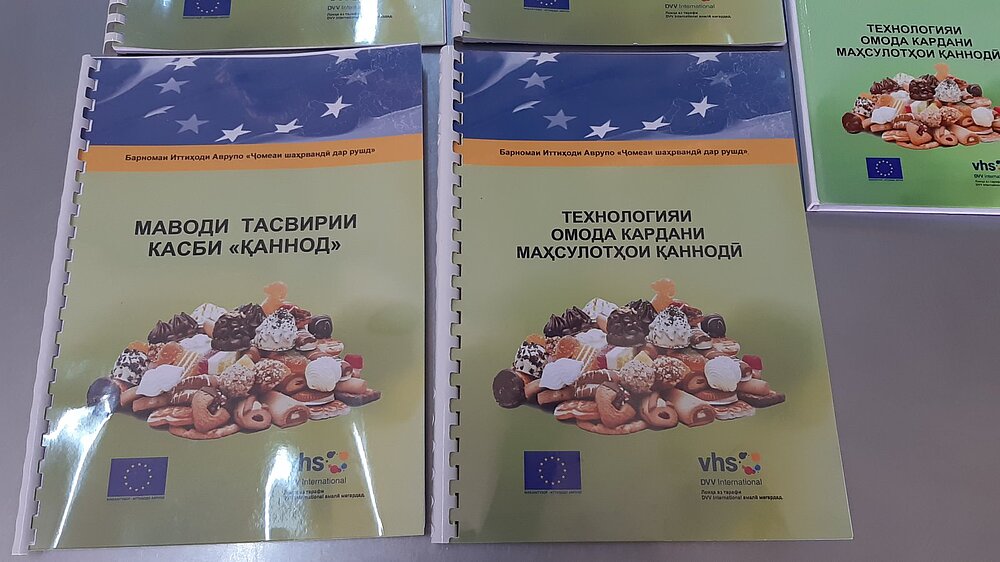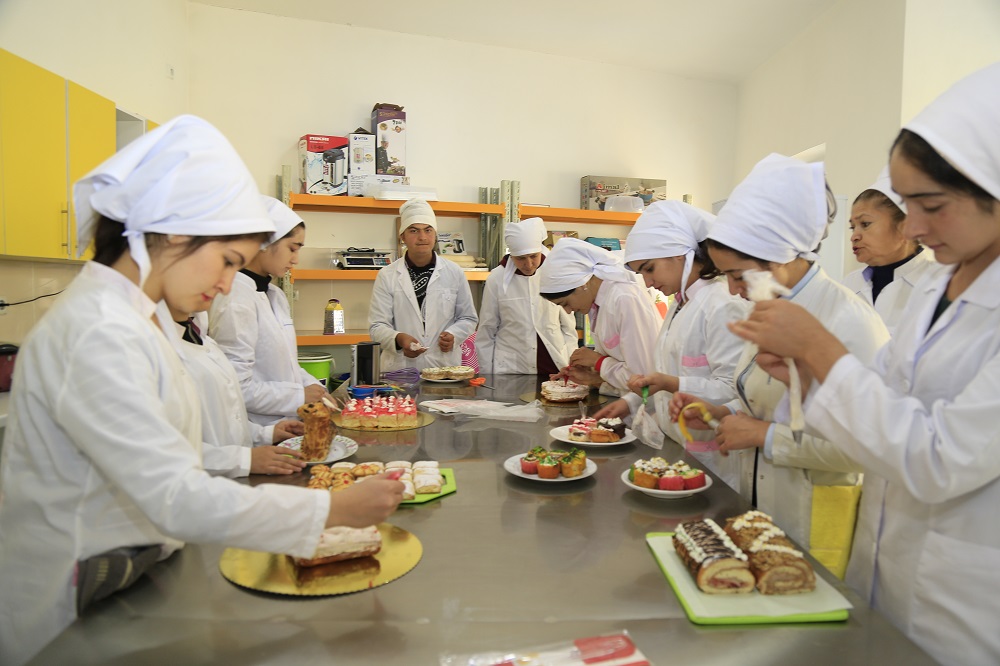Education for people with disabilities, along with training materials for inclusive education, also requires access to educational institutions. Tajikistan, like other developing countries, has long been using the experience of inclusive education not only in preschool and school institutions, but also began to use it in specialized institutions of primary vocational training.
One of the projects aimed at inclusive vocational training is the project “Promotion of Social Change and Inclusive Education in Tajikistan”. The project began its activities in April 2018 in the cities of Dushanbe, Penjikent and in the Rasht area already accomplished a number of significant activities. One of the components of the project is the preparation of training materials for inclusive vocational training and their testing during pilot courses in cooperation with the branches of the State institution “Adult Training Center of Tajikistan (ACTC)” in the aforementioned cities and regions.
Starting from October 15, 2019, the public association “Adult Education Association of Tajikistan”, in cooperation with ATC began the implementation of a pilot inclusive professional course on specialty “Confectioner”. The pilot course held in the new classes of ATC with the access for people with disabilities, which gives participants the opportunity to learn new skills.
Murodjon gets up every morning with a great interest and goes with his mother to the Center. In this center, he not only learns about the features of the confectionery but also makes new friends.
“Until the age of 18, Murodjon studied at a special school for children with disabilities, but he grew up and the question arose about continuing his education. When I turned to the district administration, they told me that the Center offers training courses where people with disabilities can study”- says Murodjon’s mother.
According to Fatima Jalilova, ATC teacher, the curricula and materials used in the courses were developed on the basis of the DACUM method, that is, through analysis of the specialty and development of training programs based on the necessary skills and competencies.
“The training materials are well developed, with detailed explanations and in plain language. These books serve as a guide for participants” – added Fatima Jalilova.
Along with that an inclusive vocational training course on beekeeping began in the branch of ATC in Rasht district, and more courses on specialties “Florist” and “Household Appliance Repair” planned to be held in Dushanbe and Penjikent cities respectively.
According to the results of the pilot courses, the training materials will be reviewed and improved, and then will be distributed in other ATC branches.
Have to note that the courses are implemented within the framework of the project "INCLUSION: Promotion of Social Change and Inclusive Education in Tajikistan" funded by the European Union and the German Federal Ministry for Economic Cooperation and Development. The project is implemented by the Country Office of DVV International in Tajikistan in partnership with local NGOs Adult Education Association of Tajikistan and the League of Disabled Women "Ishtirok".





